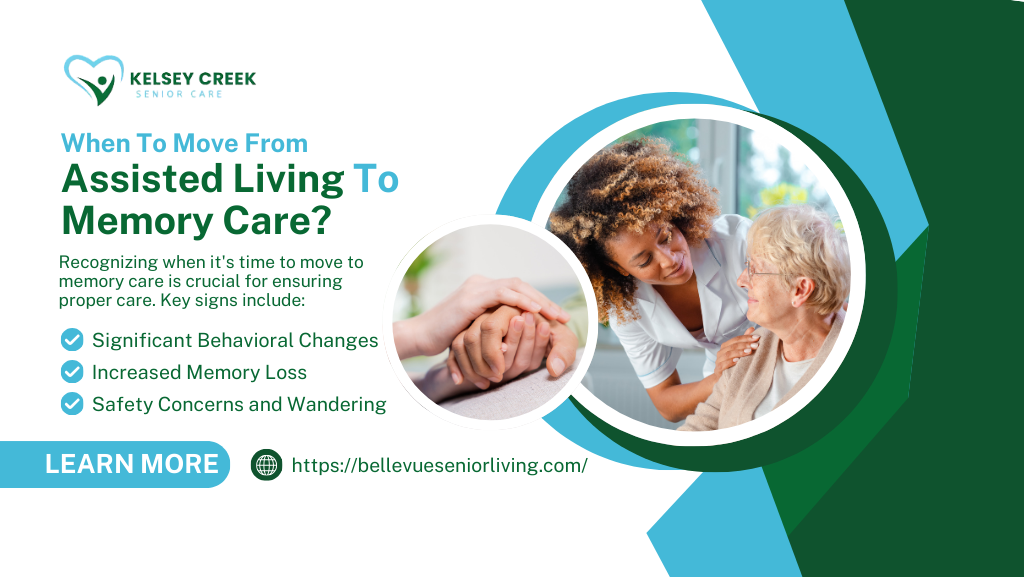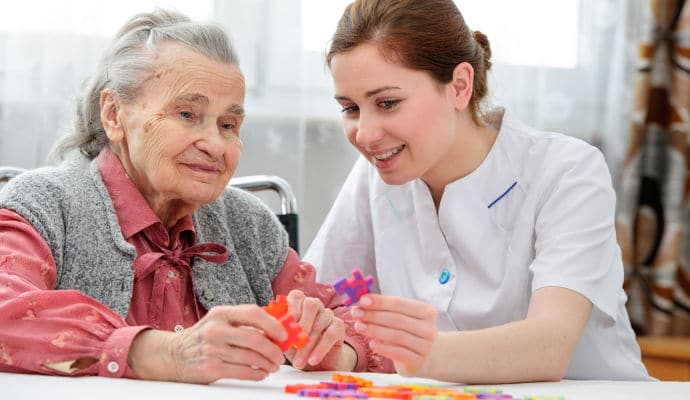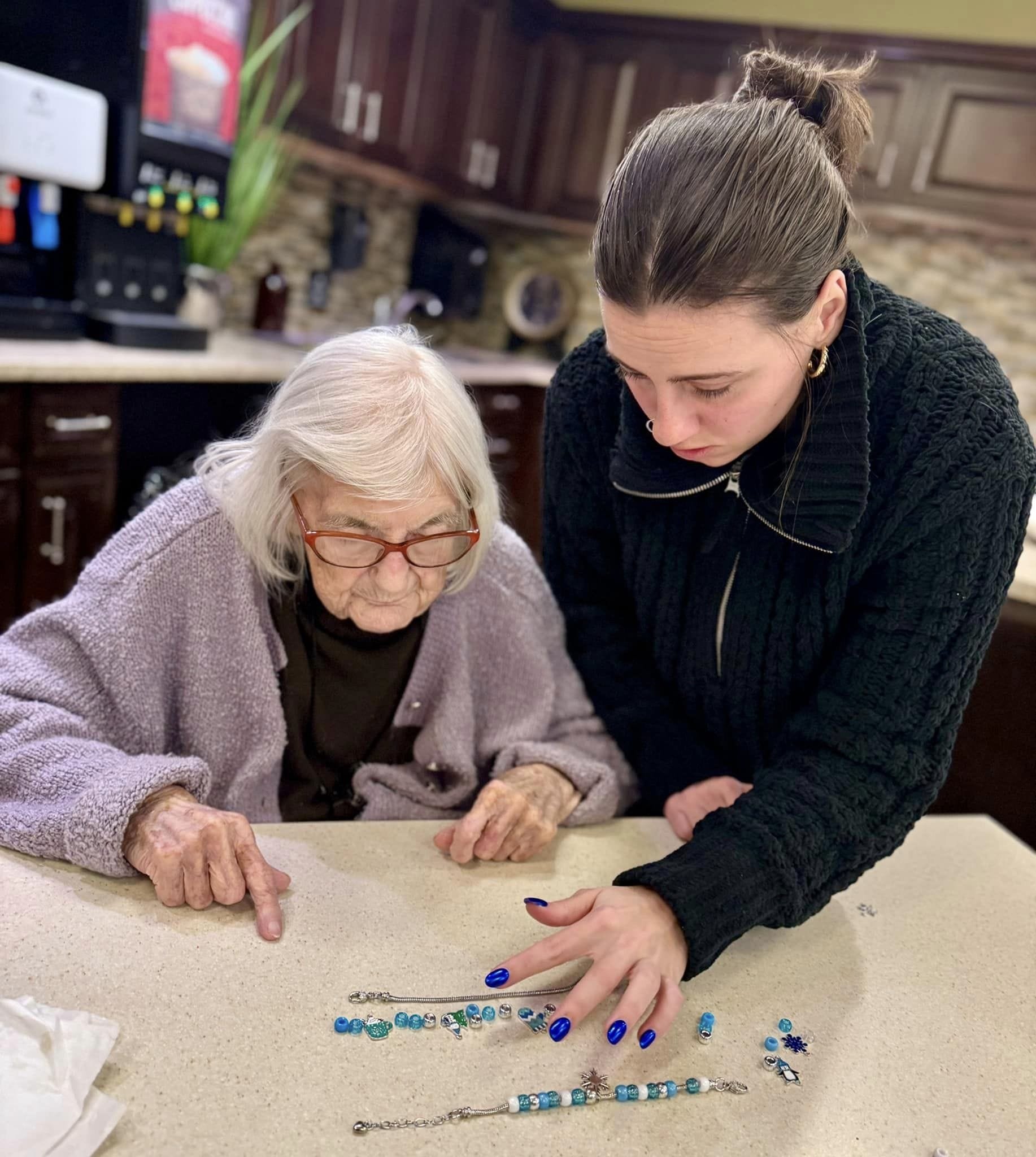Sustaining Families with Specialized Alzheimers Care Charlotte Providers
Sustaining Families with Specialized Alzheimers Care Charlotte Providers
Blog Article
Developing a Safe and Helpful Atmosphere for Alzheimer's Care
The production of a supportive and risk-free setting for individuals with Alzheimer's is critical in improving their high quality of life. This includes not only physical adjustments within the home, such as minimizing threats and including familiar aspects, but also the application of structured regimens and purposeful tasks that satisfy their cognitive requirements. Additionally, understanding the psychological and psychological dimensions of care can significantly impact their complacency and link. Checking out these multifaceted methods can disclose crucial understandings into effective caregiving strategies that might transform the day-to-day experiences of both caretakers and patients.
Recognizing Alzheimer's Needs
Often, people with Alzheimer's condition exhibit a range of demands that need tailored techniques to care. As the condition progresses, cognitive decrease materializes in different means, affecting memory, thinking, and even the ability to carry out everyday activities. Caretakers must recognize these advancing demands to supply appropriate support and guarantee a higher quality of life for those impacted.
One crucial element of recognizing Alzheimer's needs is acknowledging the significance of regular and experience. People usually locate convenience in well established patterns, which can lower anxiety and complication. Caretakers should make every effort to produce structured everyday timetables that include meaningful tasks aligned with the individual's capacities and passions.
In addition, effective interaction is vital. People with Alzheimer's might struggle to share themselves or comprehend complex language. Caregivers ought to employ straightforward, clear language, usage non-verbal signs, and practice energetic listening to foster understanding and connection.
Caregivers must encourage interaction in community tasks or family members celebrations, advertising a sense of belonging and function. Understanding these diverse needs is important for creating a helpful treatment atmosphere.
Designing a Safe Home
Producing a risk-free home for individuals with Alzheimer's condition is important to promoting and decreasing dangers independence. The design of the living room need to prioritize safety and security while enabling for personal comfort. Get rid of prospective risks such as loose carpets, sharp things, and clutter, which can lead to drops or accidents. Ensure that paths are clear and well-lit, as correct lighting lowers disorientation and enhances mobility.
Integrating adaptive attributes is additionally crucial. Mount grab bars in shower rooms and near stairways, and think about using non-slip floor coverings in wet locations. Additionally, making use of contrasting colors for wall surfaces and floors can aid in distinguishing areas, aiding to alleviate confusion.
Knowledge is important for people with Alzheimer's. Customizing the environment with acquainted items and photographs can enhance a feeling of belonging and security - Alzheimers Care Charlotte. It is likewise useful to have actually an assigned location for everyday activities, such as analysis or crafting, which can give structure to their day
Last but not least, applying a safe outside space permits safe exploration while connecting with nature. By thoughtfully designing the home atmosphere, caretakers can significantly improve the top quality of life for individuals dealing with Alzheimer's illness.
Enhancing Communication Abilities

Non-verbal interaction, including faces, gestures, and touch, plays a crucial function in communicating empathy and understanding. Maintaining eye contact and a calm temperament can boost the comfort level of the individual, promoting a feeling of safety and security.
Furthermore, it is vital to practice active listening. This includes being completely existing, showing persistence, and permitting the individual to reveal themselves without disturbance. Repeating may be essential; caretakers ought to be prepared to revisit questions or topics, as individuals with Alzheimer's may deal with memory recall.
Furthermore, making use of visual aids or cues, such as photos or acquainted items, can facilitate acknowledgment and interaction. Inevitably, improving interaction skills has to do with constructing trust fund and developing an environment where people feel listened to, valued, and understood, thus enhancing their high quality of life.
Encouraging Social Communication
Fostering meaningful social interactions can substantially boost the health of individuals with Alzheimer's condition. Engaging with others not only helps fight feelings of seclusion but also promotes cognitive link function and psychological health. Structured social tasks, such as team crafts, arts and video games, or music treatment, develop opportunities for locals to attach with peers and caretakers, which can result in enhanced state of mind and decreased stress and anxiety.
Developing a welcoming setting that motivates socialization is important. This can be accomplished by organizing common areas that help with interaction, such as comfy seating locations or task rooms. In addition, including acquainted and culturally appropriate tasks can spark memories and motivate engagement, enabling people with Alzheimer's to feel more linked to their past experiences.
In addition, caregivers should be educated to acknowledge and advertise social interaction among locals. By prioritizing social communication, we can substantially enrich the lives of those living with Alzheimer's, fostering a sense of community and belonging.
Supporting Caregiver Well-being

To support caregivers, organizations ought to use routine training and educational resources to improve their understanding of Alzheimer's illness and caregiving methods. Giving accessibility to respite care solutions allows caregivers to take essential breaks, reducing stress and exhaustion - Alzheimers Care Charlotte. Furthermore, promoting a neighborhood through support system can promote emotional sharing and the exchange of practical advice amongst caretakers, producing a network of mutual assistance
Psychological wellness resources, such as counseling services, can likewise be essential in addressing the emotional toll caregiving can take. By focusing on caregiver wellness, we produce an even more sustainable caregiving environment that not learn this here now only profits the caregivers themselves yet additionally improves the overall top quality of care obtained by individuals with Alzheimer's. Ultimately, sustaining caregivers is a crucial part in cultivating a caring and efficient treatment setting.
Verdict
Finally, the creation of a risk-free and helpful setting for individuals with Alzheimer's is necessary to improving their high quality of life. By focusing on security with thoughtful design, fostering emotional health with familiar aspects, and advertising involvement with structured regimens, caregivers can considerably influence the total experience of those influenced by this condition. Sustaining caretaker wellness is essential, as it eventually contributes to a much more compassionate and effective treatment environment.
Repeating may be essential; caretakers should be prepared to revisit topics or concerns, as individuals with Alzheimer's might struggle with memory recall.

Report this page